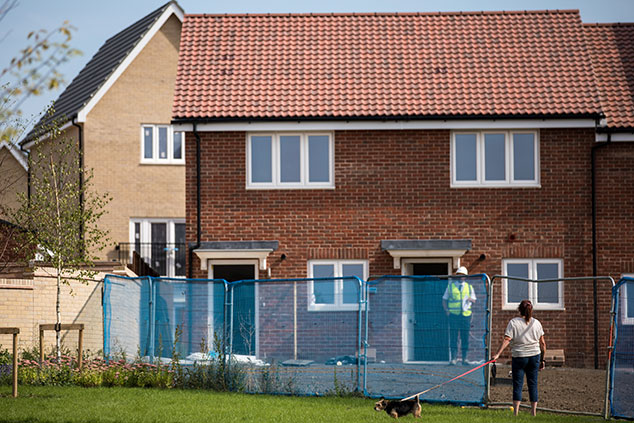
We aren’t 100% convinced that the housing problem is just about Nimbys – easy credit, very low interest rates, the horrible mismanaged Help to Buy scheme and the sudden surge in demand caused by mass immigration have all played their part. But his solution is still interesting.
Right now, if you get planning permission for what was agricultural land, you get rich. Simple as that. The value of land that gets change of use rises on average by 13,000% – or more around Cambridge, Oxford and London (think 28,000%).
Why, you might ask, should all that lovely value accrue mainly to the landowner (the council often gets a little cut) when it is his neighbours who will be taking the pain (building houses shouldn’t be such a trial for those living near sites – see my article here on modular housing – but it is)?
Why not smooth troubled waters by offering some of the money to to homeowners in the area not in the form of vague promises about community projects but instead as direct cash transfers?
Right now Nimbys are surely acting rationally in objecting to development around them – it will cut the market price of their own houses while putting pressure on the already inadequate services on which they depend. “A sizable and direct financial handout would radically alter their attitude.” I bet it would.
We like the idea. It fits neatly with our views on, for example, wind farms (which also provide stunning windfalls to landowners). Why not, we said back in 2016 get anyone sticking up a windfarm to compensate all those complaining about the resulting inconvience and fall in the value of their houses with a direct payment in the form of a lump of cash or a 25-year annual payment.
That would surely make them keener on the whole thing than the usual system of the farm bunging some money into a community account and them leaving it in the hands of someone who might or might not be representing the community as defined by those living in the shadow of the turbines.
It also chimes with our support for the land value tax – something which is designed to ensure that landowners do not benefit too much from amenities paid for by the taxpayer.
Building land in London is not worth 28,000% more than non-building land because of the landowner, but (in part at least) because of the state-funded amenities around it. So why should the landowner get all the loot?
We aren’t expecting the UK tax system to go through a radical transformation any time soon (this never happens), but the fact that these ideas keep popping up rather suggests that, when it comes to land at least, some interesting thoughts about change are at least brewing.